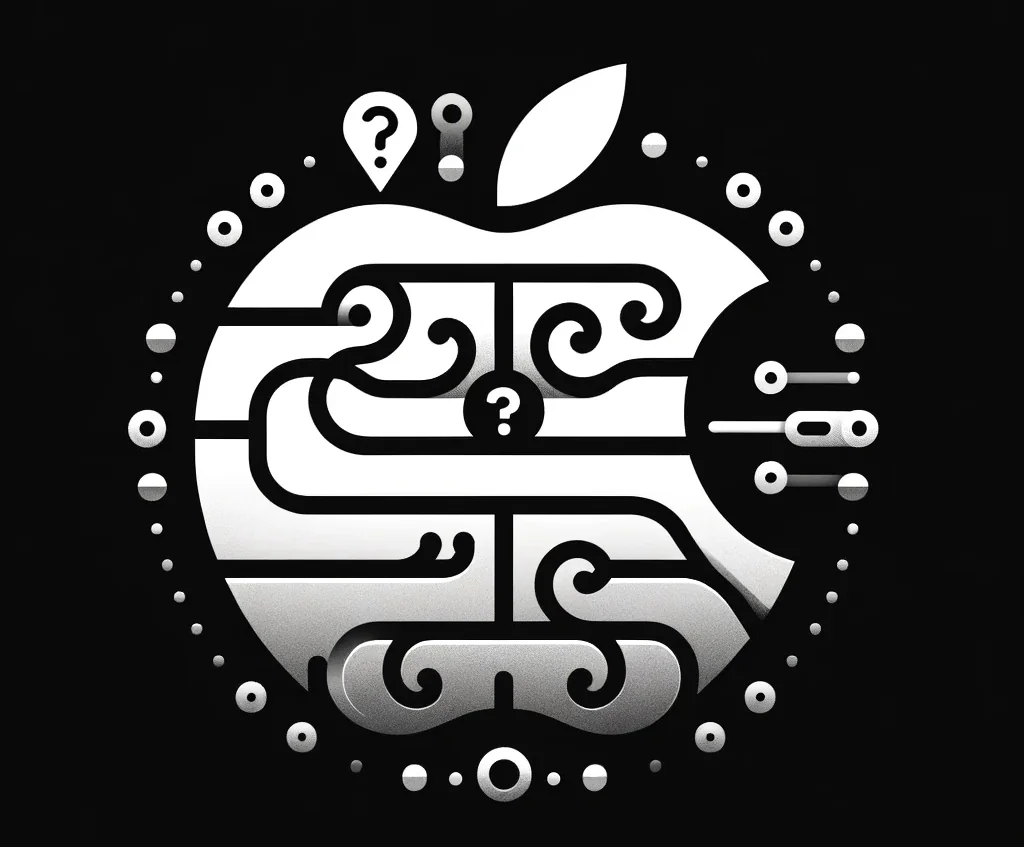Landing an interview at Apple is like opening the door to an orchard of opportunity—exciting, but also overwhelming. The stakes are high and the competition is stiff, but the biggest hurdle is often not knowing what to expect. Let’s ease some of that uncertainty and help you prepare to make a great impression.
What Kind of Technical Questions Does Apple Ask?
Brace yourself for a brain teaser or two. At Apple, the interview process typically involves a series of technical questions that gauge your expertise in core areas relevant to the position you’re applying for.
You might be quizzed on data structures like arrays, linked lists, trees, heaps, and hash maps; vital when considering the efficiency of an application. On the algorithm front, searching and sorting algorithms are a hot topic, alongside dynamic programming, recursion, and complexity analysis, showcasing how optimal and scalable your solutions can be.
System design questions could leave you concocting blueprints for scalable systems or dissecting the workings of intricate architectures. Don’t be surprised if you’re asked to navigate through complex coding problems, usually requiring a clear and accurate code under a watchful eye.
For instance, you may be tasked with writing a function to reverse a linked list, or designing an algorithm to solve a real-world problem, like optimizing a routing system for delivery vehicles.
How Do I Demonstrate My Problem-Solving Skills?
Use your intellect like a Swiss army knife. Apple interviewers are on the lookout for candidates who exhibit extraordinary analytical and problem-solving acumen. When you’re hit with a perplexing question, start by breaking down its components. Articulate your approach aloud; it’s like giving the interviewer a backstage pass to the magic of your mind.
Dive in by asking clarifying questions to ensure you’re on the same page as the interviewer. Then, lay out the strategy you plan to use, explaining each decision’s rationale. Your aim should be to convey a structured plan of attack. If you encounter roadblocks, don’t hide your troubleshooting process—it’s gold, showing your resilience and adaptability.
Remember, communication skills are as instrumental as your coding prowess. Your ability to clarify complex concepts in simple terms can demonstrate your potential for teamwork within Apple’s ecosystem.
Absolutely, here’s a slice of insider knowledge. Coding interviews at Apple are a performance, where your code is the star, and you’re the director. Keep a few key practices in mind to ensure a standing ovation:
- Clarity is king. Write code that speaks for itself—think straightforward logic and descriptive variable names.
- Efficiency isn’t an afterthought. Aim for the most computationally friendly way to solve problems. O(n) is better than O(n^2), every time.
- Test as you go. Integrate testing into your writing process to catch bugs early on. It’s like having a net under your tightrope.
- Think aloud. A silent solution is a mystery. Narrate your thought process to engage your interviewer and invite collaboration.
- Practice makes perfect. Tackle coding challenges on platforms like LeetCode or HackerRank to hone your skills.
And here’s the ace up your sleeve: don’t neglect the human aspect. Apple values innovation, but they also cherish candidates who bring a human touch to problem-solving. Showcase how your code can enhance the user experience or meet real user needs and you’ll have an edge. It’s not all about the machine—it’s about the people who use it.
Remember, there’s more to come! Stay tuned, as we continue to unravel the path to excelling in Apple’s interview process. Keep coding, keep solving, and above all, keep learning – your next big opportunity could be just around the corner.
Examples of Apple Technical Interview Questions (by role)
In this section, we’re going to share some of the most common technical interview questions at Apple by the role/position you’re applying for. These are just some common examples that applicants get, and there are many more. However, knowing these may help you prepare and increase your chances.
Software Engineer
Some of the technical interview questions for a software engineer at Apple include:
-
design a workflow diagram for a problem
-
system design, session management, REST, data store questions
-
typical data structures, parsing, flow control, corner case handling
-
chessboard problem and its variations
-
find the least common ancestor of two nodes in a tree
-
implement a quadtree/list
-
debug a hash table implementation
Data Scientist
Some of the technical interview questions for a data scientist at Apple:
-
Find the index at which the sum of the left half of the array is equal to the right half?
-
What is a time series model and how do you do the calculation of ACF and PACF?
-
What is the Bias-Variance tradeoff and how is XGBoost handling it?
-
What is a propensity model and how are beta estimates calculated by MLE?
-
Code in Python to find anagrams in a list and print it out.
-
Describe the difference between L1 and L2 regularization.
UX/UI Designer
Some of the technical interview questions for a UX/UI designer at Apple:
-
How do you make a double clock cycle?
-
Give us 5 different ways to create a line of holes in a tube
-
Lots of pressure and material questions
-
Draw an FBD of a computer monitor
-
How would you assemble the Macbook Pro’s power adapter?
-
What is the most challenging project you’ve ever worked on?
-
What inspires your design and what is your design process?
Product Manager
Some of the technical interview questions for a product manager at Apple:
-
What’s the accomplishment that you’re most proud of in your career?
-
What feature would you like to see added to [some product]?
-
Tell me of a time when you needed to make a decision in the midst of a lot of ambiguity
-
Walk me through the components needed to build a data processing and reporting system
-
There’s an assembly line and all of a sudden it stops working. No one is around. How would you handle it?
-
What’s your favorite Apple product?
What’s the Best Way to Prepare for System Design Questions?
When you’re gearing up to tackle system design questions, it’s like preparing for a major league game. You need a strategy that’s well thought out and practice that’s targeted and effective. What’s crucial here is conveying your understanding of scalability, reliability, and system components in a way that resonates with your interviewers.
- Understand the Basics: Start with a solid foundation in the basics. You should be comfortable with common algorithms, data structures, and design patterns. Websites like GitHub or Stack Overflow are treasure troves for brushing up on these concepts.
- Dive into Scalability: It’s pivotal to demonstrate that you understand how to build systems that can gracefully handle growth. How do you improve database performance with sharding or replication? What load balancing techniques can you employ? Read case studies from reliable sources like the ACM (Association for Computing Machinery) to see real-world examples of scalability.
- Practice Makes Perfect: Mock interviews can significantly sharpen your skills. Use platforms like Pramp, which provide free peer-to-peer practice interviews.
- Know the Components: Bone up on knowledge about databases, caching, networking, and message queues. These are the building blocks of any system design.
- Think Reliability: Always factor in failover strategies, data backups, and resilient design patterns to show that you’re thinking about reliability from the get-go.
- Communication is Key: As you answer, structure your thoughts clearly. First lay out the problem, outline potential solutions, discuss trade-offs, and then settle on the most suitable solution.
One unique angle to consider is Domain-Specific Design Challenges. Often overlooked, understanding the common system design challenges in Apple’s domain (like handling massive numbers of simultaneous users on a music streaming service) can set you apart and showcase tailored problem-solving skills.
How Important Are Soft Skills in Apple’s Technical Interviews?
Soft skills in a technical interview? You bet they’re important. At Apple, they don’t just look for wizards of code; they seek well-rounded individuals who can fit into the tapestry of their culture and collaborate with teams to innovate.
Communication – Explain your thought process in a clear, concise manner. Don’t just dive into coding; discuss your approach first.
Teamwork – Interviewers might ask about previous team projects. This is your opportunity to show you can play ball with others, sharing the spotlight and handling conflicts with grace.
Leadership – Show your potential for growth by talking about situations where you took the lead, even in small ways.
Cultural Fit – Apple is huge on culture. Research their values, products, and customer commitment. This will help you convey how your personal values and work ethic align with theirs.
Remember, technical chops need to be accompanied by people skills. As you practice your coding, don’t forget to hone your ability to connect and communicate.
Any Last-Minute Tips Before the Big Day?
The countdown begins, and nerves may start to rocket. But hey, take a deep breath – you’ve got this. Here are some last-minute tips to help you cross the finish line with confidence:
- Good Night’s Sleep: It’s your best friend. Aim for at least 7-8 hours of quality sleep. Your brain will thank you later.
- Healthy Eating: On the day before, and the day of the interview, opt for balanced meals. Think brain food like fish, nuts, and blueberries.
- Stress Busters: Got a go-to relaxation technique? Do it. Yoga, meditation, or a short walk can work wonders for your stress levels.
- Exercise: Even if it’s a brisk 20-minute walk, getting your blood flowing can boost your mood and alertness.
And here’s something you might not hear often: Practice gratitude. It may seem out of left field, but taking a moment to reflect on what you’re grateful for can put you in a positive state of mind.
On the day of the interview, muster up a blend of assertiveness and calmness. Listen attentively and don’t be afraid to ask clarifying questions. And most of all, stay true to yourself. Your unique perspective and authenticity can be your ace in the hole.
Remember, interviews are a two-way street. They’re as much about you assessing Apple as Apple assessing you. So, walk in there knowing your worth and ready to showcase what you bring to the table. With these tips and a dash of confidence, you’re all set to knock it out of the park. Good luck!
Quick Recap
Dive head-first into Apple’s technical interview with these high-impact pointers:
- Technical Mastery: Expect to tackle data structures (arrays, linked lists, trees, heaps, hash maps) and algorithms (searching and sorting, dynamic programming, recursion, complexity analysis). System design questions will assess your ability to architect scalable, reliable systems.
- Problem-Solving Prowess: Describe your thought process aloud, ask clarifying questions, and demonstrate analytical skills. Walk the interviewer through your approach to show off your grit and resourcefulness.
- Coding Interviews: Write clear, efficient code and test as you go. Verbalize your logic to make it a collaborative process. Practice by engaging in coding challenges on platforms like LeetCode and HackerRank.
- System Design Prep: Ground yourself in the fundamentals of system building, understanding scalability, and mastering components like databases and caching. Simulate the real deal with mock interviews.
- Soft Skills: Don’t undervalue communication, teamwork, and cultural fit—express your ideas clearly, demonstrate collaborative experiences, and align yourself with Apple’s core values.
- Final Countdown: Prioritize a good night’s sleep and wholesome nutrition to keep your mind sharp. Use stress-relief techniques to remain composed. Remember, being thankful can give you a mental edge.
Approach your Apple interview with the knowledge that you’re gauging them as much as they are you. Confidence, thorough preparation, and authenticity are your tickets to success. Swing for the fences!


